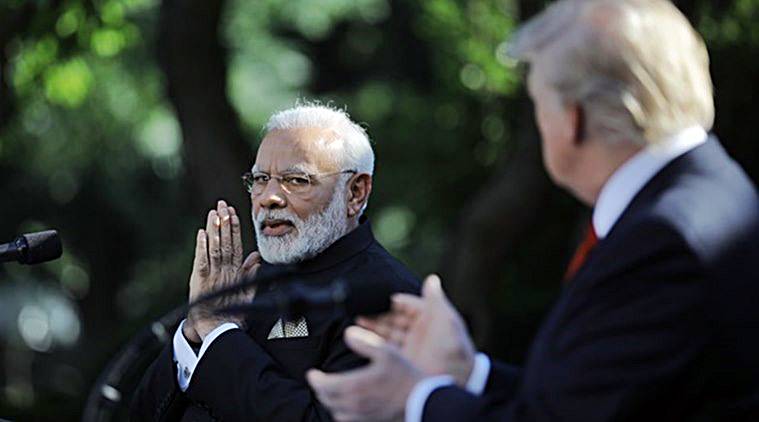"India, as part of our bilateral trade relations, had offered resolution on significant US requests to find a mutually acceptable way forward. Unfortunate that this didn't find acceptance by the US," India said.
A day after President Donald Trump said the US would not back down on ending preferential trade treatment to India, the Ministry of Commerce Saturday said India had offered several resolutions, which, however, “didn’t find any acceptance by the US”. In a statement, the Ministry of Commerce said, “India, as part of our bilateral trade relations, had offered resolution on significant US requests to find a mutually acceptable way forward. Unfortunate that this didn’t find acceptance by the US.”
India also expressed hope that the issue was a “part of a regular process” which “gets resolved mutually from time to time”.
“In any relationship, particularly in the area of economic ties, there are issues which get resolved mutually from time to time. We view this issue as a part of a regular process and will continue to build on our strong ties with the US, both economic and people to people,” the statement said.
On Friday, Trump terminated India’s designation as a beneficiary developing nation under the key GSP trade programme after determining that it had not assured the US that it will provide “equitable and reasonable access to its markets.”
The Generalized System of Preference (GSP) is the largest and oldest US trade preference programme and is designed to promote economic development by allowing duty-free entry for thousands of products from designated beneficiary countries.
“I have determined that India has not assured the US that it will provide equitable and reasonable access to its markets. Accordingly, it is appropriate to terminate India’s designation as a beneficiary developing country effective June 5, 2019,” Trump said in a proclamation on Friday ignoring the plea made by several top American lawmakers.
Source: Read Full Article


